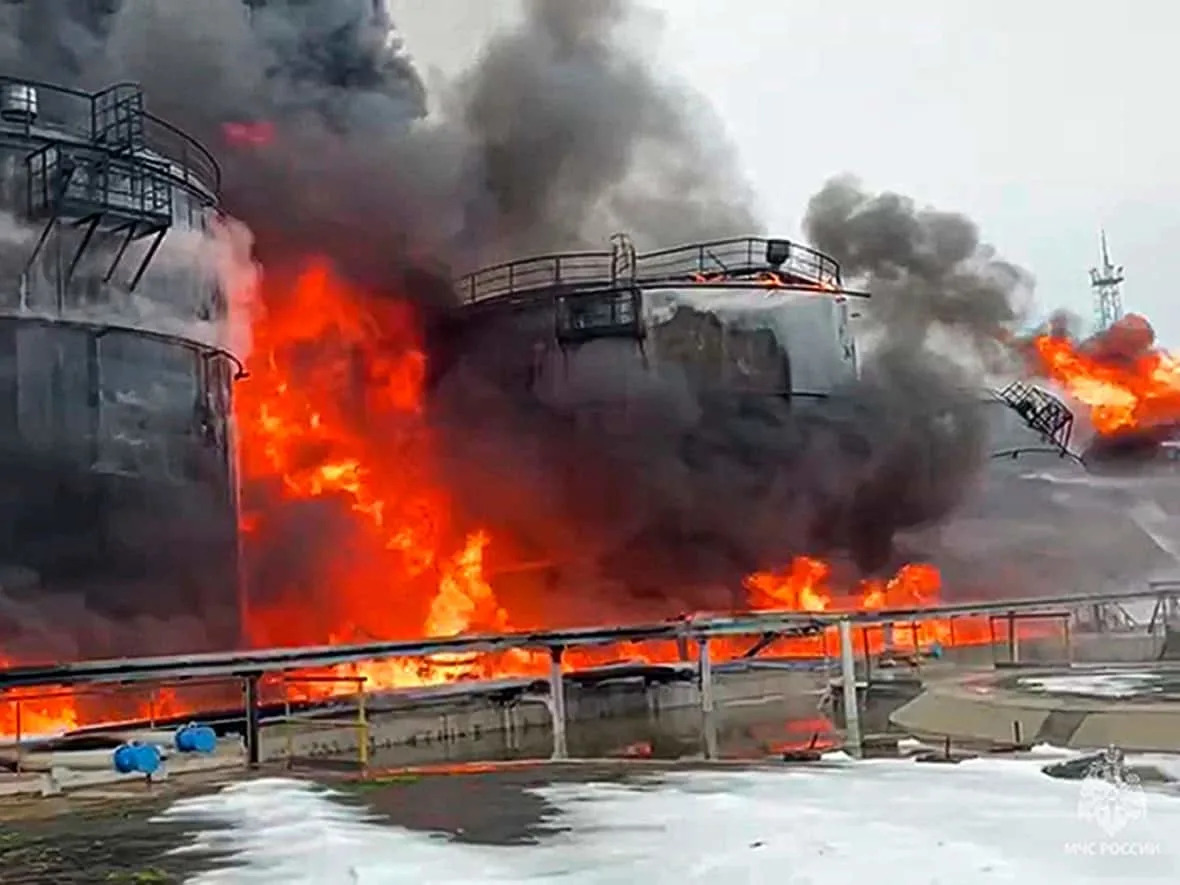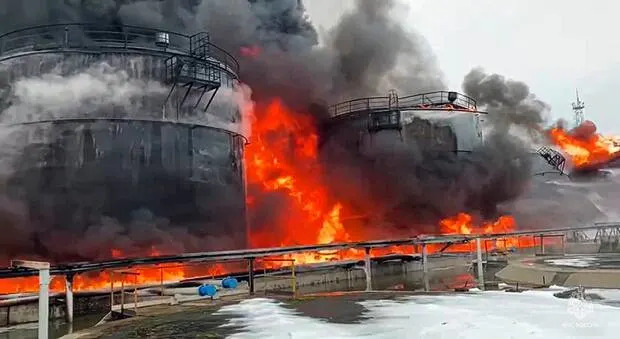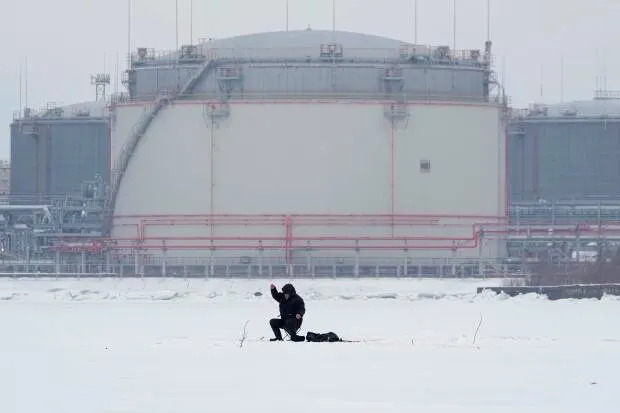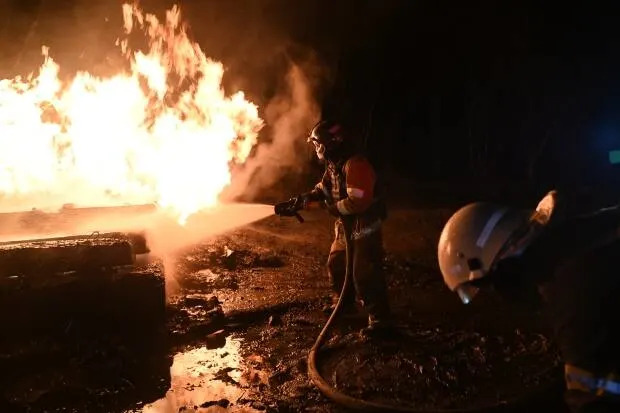CBC
What continued drone strikes on Russian oil refineries could mean for war with Ukraine
CBC – February 18, 2024

Hostile drones have been winding their way across the Russian landscape this winter, striking refineries and related oil and gas infrastructure all the way from the Baltic Sea in the northwest to the Black Sea in the southwest.
Drones attacked both the Ilsky and Afipsky refineries in Russia’s Krasnodar region, east of occupied Crimea, on Feb. 9, less than a week after another refinery in Volgograd, the largest in southern Russia, was hit. Further attacks have struck other refineries and oil depots near the Ukrainian border, as well as much deeper into Russian territory.
Though Ukraine does not typically confirm its actions outside its borders and Russia has not officially acknowledged drones were the cause of these incidents, media reports have identified Kyiv’s hand in the attacks occurring with regularity as Moscow’s invasion of Ukraine nears the two-year mark.
Analysts say the drone attacks are demonstrating that oil and gas targets of economic significance are not out of reach, even far from the front lines of the war.

“This is where strikes are intended to hurt,” said Sergey Radchenko, a professor at the Johns Hopkins School of Advanced International Studies. He sees a distinction between these types of targets versus strikes that have drawn attention but had less strategic impact.
He says Ukraine has gradually been able to send drones “further and further inside Russia,” and in doing so, may be aiming to make Russia think twice about its actions on the other side of the border.
Russia, oil and revenues
Late U.S. Senator John McCain once derisively described Russia as being “a gas station masquerading as a country” — a jibe underlining the critical importance of oil and gas products to Moscow.

Indeed, Russia draws heavily on its resource reserves to support the state. The International Energy Agency says Russia’s oil and gas export revenues accounted for 45 per cent of its federal budget in 2021.
Over the course of the war, as the West capped the price of Russia’s oil, it turned instead to China, India and other markets.
As Radchenko points out, these exports contribute “significantly” to Russia’s earnings, allowing it to use those funds to import goods and support the war effort.
A January attack on a Novatek facility in Ust-Luga halted gas processing operations there for several weeks. The plant processes gas condensate into various fuel products that are exported to customers in Turkey and Asia, according to Reuters.
Sergey Vakulenko, a former strategy executive at Gazprom Neft, a subsidiary of the larger Russian energy firm, believes the Ust-Luga episode may illustrate a bigger problem for Russia than a temporary disruption to production at a single facility.
In a recent analysis published online, Vakulenko reasoned that if small drones can get all the way to Ust-Luga, which is hundreds of kilometres from the Ukrainian border, there are some 18 Russian refineries at risk of being targeted, and they account for more than half the country’s refinery production. He’s not the only analyst noticing this concern for Russia’s refineries.
And while the drones being used in these attacks may be small, they can still cause problems.
“With a bit of luck, they can damage not just pipelines, but also compressors, valves, control units, and other pieces of equipment that are tricky to replace because of sanctions,” Vakulenko wrote in the analysis.
The Russian government has taken steps to deal with the problem.
Maxim Starchak, an independent expert on the Russian defence and nuclear industry, says regulations have been put in place to restrict drones from flying close to “the most significant fuel and energy sector facilities” and operators are using electronic warfare systems to defend against drone threats.
But Starchak said Russian energy firms must foot the bill for expenses related to defence of their facilities.
“Moscow will not specifically help,” he said, noting Russian authorities may hold firms accountable for not putting measures in place to protect their facilities.
A familiar threat for Ukraine
On the other side of the border, Ukraine has seen the deadly impact drone strikes can have — including in Kharkiv last weekend.

Regional governor Oleh Syniehubov said at least 10 incoming drones were involved in the assault, with eight of the devices shot down — but one hit an oil depot, which then caused a fuel leak. The ensuing fire burned down 15 homes and killed at least seven people.
Ukraine has faced attacks on various forms of infrastructure since the launch of the Russian invasion, including its energy grid, port facilities and railway stations.
As Ukraine continues to fight to repel Russian forces from its lands, its military leaders have signalled drones and related technology will be needed to win the war that seems to have no end in sight.
“Only changes and constant improvement of the means and methods of warfare will make it possible to achieve success on this path,” said Col.-Gen. Oleksandr Syrskyi, the newly minted Ukrainian army chief, in a recent Telegram post.










